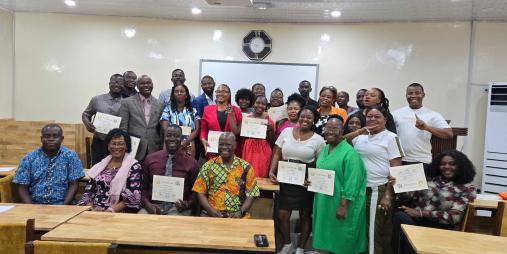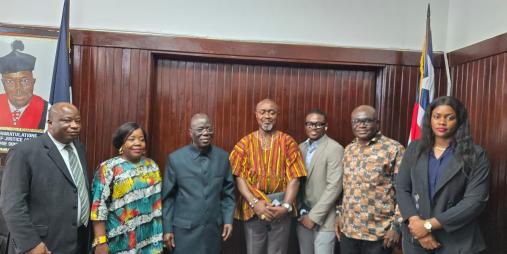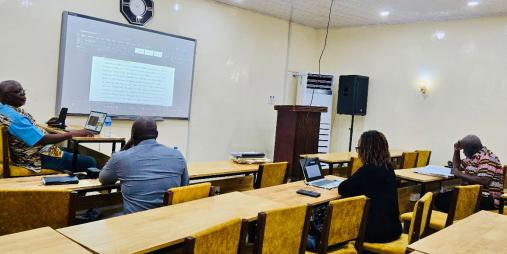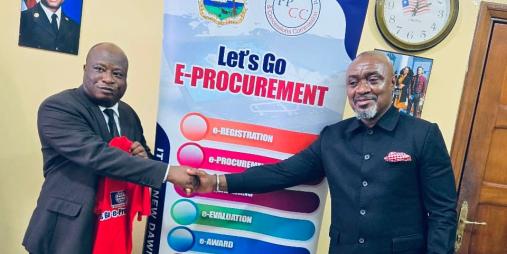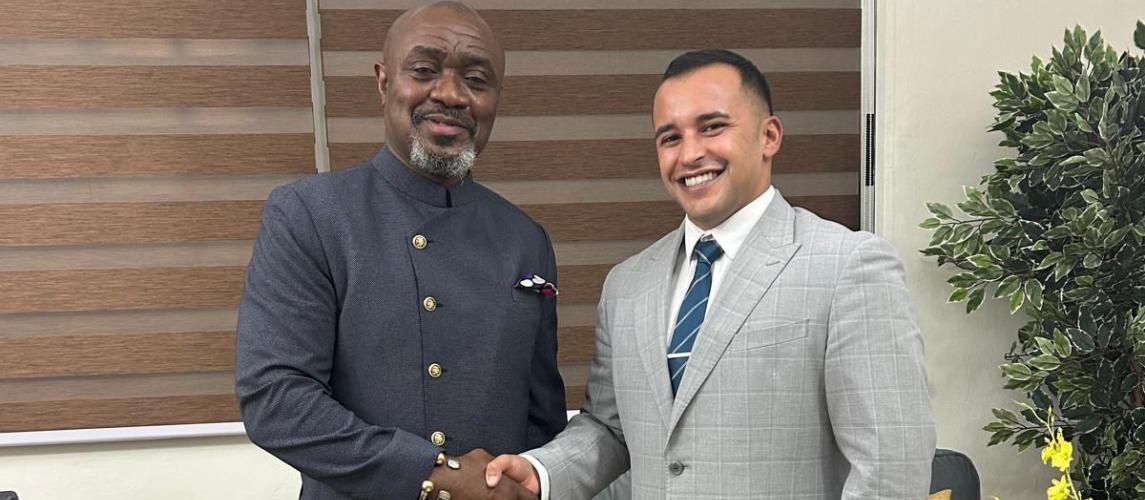
PPCC and USAID Spotlight Investment Reforms
PPCC Strengthens Transparency and Procurement Reforms to Boost Investment Opportunities in Liberia
Monrovia, Liberia: In an exclusive interview with the United States Agency for International Development (USAID), the Executive Director of the Public Procurement and Concessions Commission (PPCC), Hon. Bodger Scott Johnson, highlighted ongoing reforms aimed at enhancing transparency, accountability, and efficiency in Liberia’s public procurement system, key factors in attracting both local and international investment.
Championing Transparency and Fairness
Mr. Johnson noted that the PPCC has significantly reduced corruption, inefficiency, and favoritism in contract awards through initiatives such as the Complaints, Appeals and Review Panel (CARP), the Electronic Government Procurement (e-GP) system, and continuous capacity-building programs.
He described the e-GP platform, developed in partnership with European Dynamics, as a major reform that has eliminated political interference and manual manipulation in procurement.
“The e-GP system promotes transparency and ensures that public procurement is open, competitive, and traceable,” Mr. Johnson said. “It removes human influence from bidding to contract award and builds investor confidence.”
He added that the government’s strong support, combined with the active participation of the business community, has strengthened PPCC’s reform efforts, supported by ongoing training for both staff and stakeholders.
Monitoring and Enforcement
On compliance, Mr. Johnson acknowledged logistical challenges that limit full enforcement across Ministries, Agencies, and Commissions (MACs). However, he emphasized that the PPCC continues to collaborate with the World Bank, African Development Bank, UNDP, and the Swedish Embassy to improve systems and strengthen oversight.
Ensuring Fairness through CARP
According to Mr. Johnson, CARP plays a vital role in promoting fairness and accountability by providing an independent and transparent mechanism for resolving procurement disputes; “CARP ensures due process and has been instrumental in maintaining trust in the system,” he explained.
The panel, comprising lawyers and individuals from private sectors with good knowledge on procurement, reviews vendor complaints, conducts hearings, and invites technical officers for clarification. Ongoing training efforts continue to enhance its effectiveness and credibility.
Technology and Innovation: A New Era
Mr. Johnson described the shift from manual to digital procurement as one of Liberia’s most transformative governance reforms.
“Technology has improved accountability, fairness, and efficiency. With e-GP, every stage of procurement, from planning to contract award is tracked digitally, reducing corruption and promoting value for money,” he said.
He revealed that 50 more MACs are being trained for onboarding, with plans to include State-Owned Enterprises (SOEs) and expand the system into the counties. So far, more than US$28 million in contracts have been awarded to Liberian-owned businesses through e-GP.
Promoting Gender-Responsive Procurement
Mr. Johnson shared that the upcoming 2025 Public Procurement and Concessions Act (PPCA) will include provisions for gender-responsive procurement, encouraging women-owned businesses and inclusive decision-making in public contracting.
Looking Ahead
The PPCC’s top priorities include:
- Full national rollout of the e-GP system
- Data-driven oversight
- Enhanced capacity-building
- Inclusive procurement practices
- Strengthened partnerships
- Upholding international best practices
- Reinforcing transparency, accountability, and value for money
“Our vision is clear, to make procurement a cornerstone of good governance, integrity, and sustainable investment in Liberia,” Mr. Johnson affirmed.
